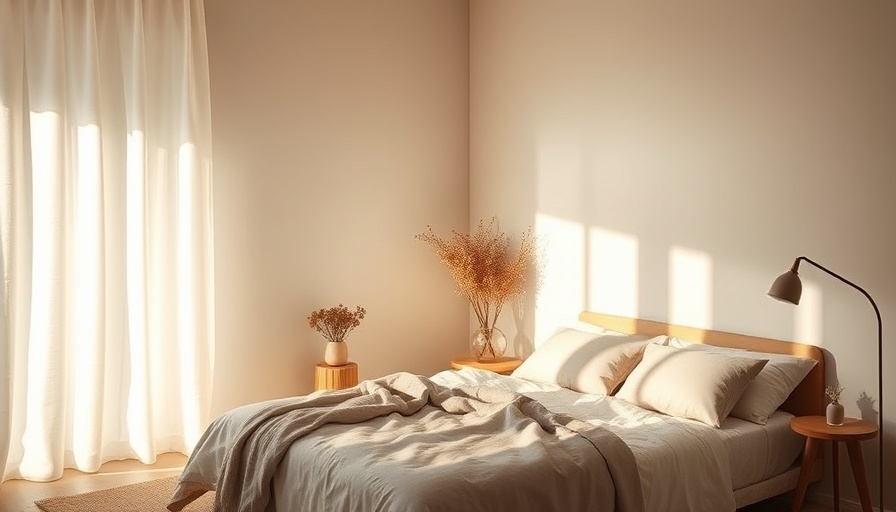
Transforming Nightly Habits: The Benefits of Reducing Screen Time
As global awareness grows surrounding the importance of quality sleep, many of us are realizing that the devices we often treasure can sabotage our nights. Recent insights from integrative optometrist Marina Gurvich, OD, and research show that by reducing nightly screen time, we can enhance sleep quality, leading to greater overall health and well-being. In her exploration, Gurvich emphasizes the reality many face: a lifetime of nighttime scrolling and lighting up screens only to grapple with restlessness as bedtime approaches.
Why Screens Keep Us Up: Understanding the Biology
The blue light emitted from our phones and tablets is notorious for disrupting our circadian rhythms. Research highlights that this type of light suppresses melatonin production, the hormone that guides us into sleep. Both Gurvich and the Sleep Foundation articulate how exposure to screens alters our biological cues, making it harder to fall asleep when we need it most. As Gurvich finds, particularly for those of us who thrive in the evening, incorporating soothing alternatives to screens can be a powerful way to reclaim restful sleep.
Simple Strategies to Wind Down Effectively
In her journey to better sleep, Gurvich suggests a range of practical strategies to break the cycle of screen addiction before bed. Some popular techniques from her insights and additional resources include:
- Establishing a Gadget-Free Zone: Keeping electronics out of the bedroom fosters an environment dedicated to sleep.
- Setting a Screen Cutoff: Dedicating the last hour before bed to screen-free activities helps mentally prepare for sleep.
- Choosing Calming Activities: Opting for reading, meditation, or calming music to wind down can create a relaxing pre-sleep atmosphere.
These strategies are not just theoretical; studies reveal that even a short period spent on calming activities before bed can significantly enhance sleep quality, reducing stress levels by nearly 68%.
Looking Ahead: The Future of Screen Use and Sleep
Predicting how we will engage with technology in the future is complicated. However, Gurvich’s insights point towards a potential shift where people may seek to engage with technology more intentionally, prioritizing sleep and mental well-being over constant connectivity. This could lead to healthier, more balanced lives as individuals learn to navigate their relationships with screens while understanding their impacts on health.
Conclusion: Embracing Technology Mindfully
The imperative is clear: as we become more attuned to the factors affecting our sleep, we must embrace mindfulness in our nightly routines. Creating intentional boundaries around screen use is not only a mechanism for better sleep but also essential for mental clarity and emotional resilience. By addressing our relationship with technology, we can pave the way for healthier lives, starting from a good night's sleep.
 Add Row
Add Row  Add
Add 




Write A Comment